Sponsored Listings:
If you follow me on Snapchat (LunaticAtLarge), it will be no big news to you that I love peach season. Peaches for breakfast, peaches for lunch, peaches in my cocktails—I simply can’t get enough. And as the 13-week season comes to an end each August, I start to stress out and squirrel away crates of peaches in my freezer to make chutneys and pan jams in the off-season.
But part of the reason I’m so smitten with peaches is thanks to a pair of food industry innovators, Stephen and Jessica Rose, who have committed to bringing the best of Georgia to those less-fortunate like me who don’t live in close proximity to a peach farm.
And, well, they simply don’t think that’s acceptable.
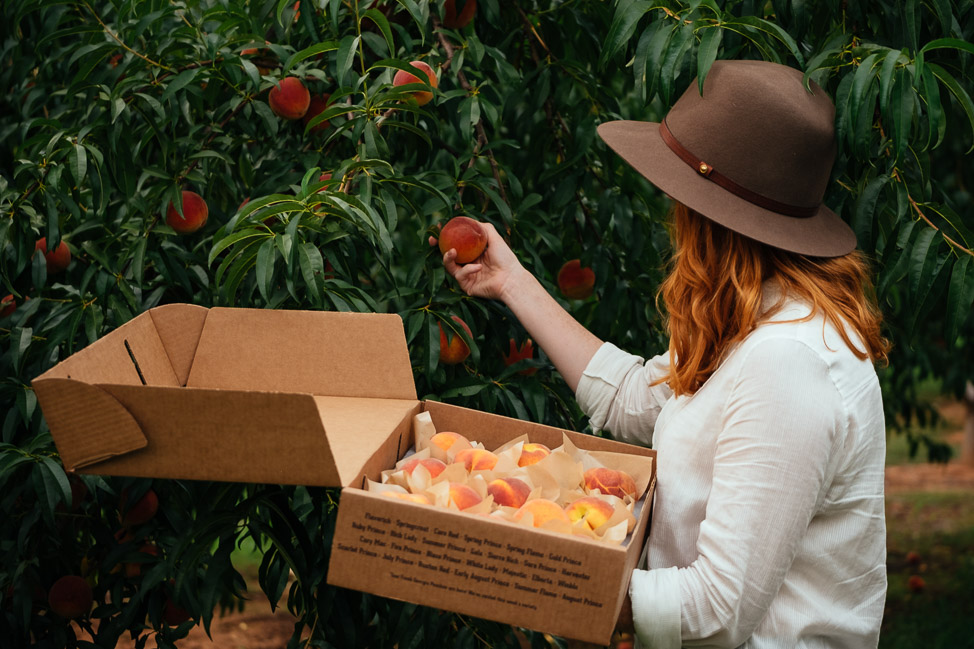
As such, the East Nashville-based couple started transporting trucks full of peaches up from Pearson Farm in Stephen’s hometown five years ago; today, The Peach Truck is, no doubt, one of the most popular residents in town.
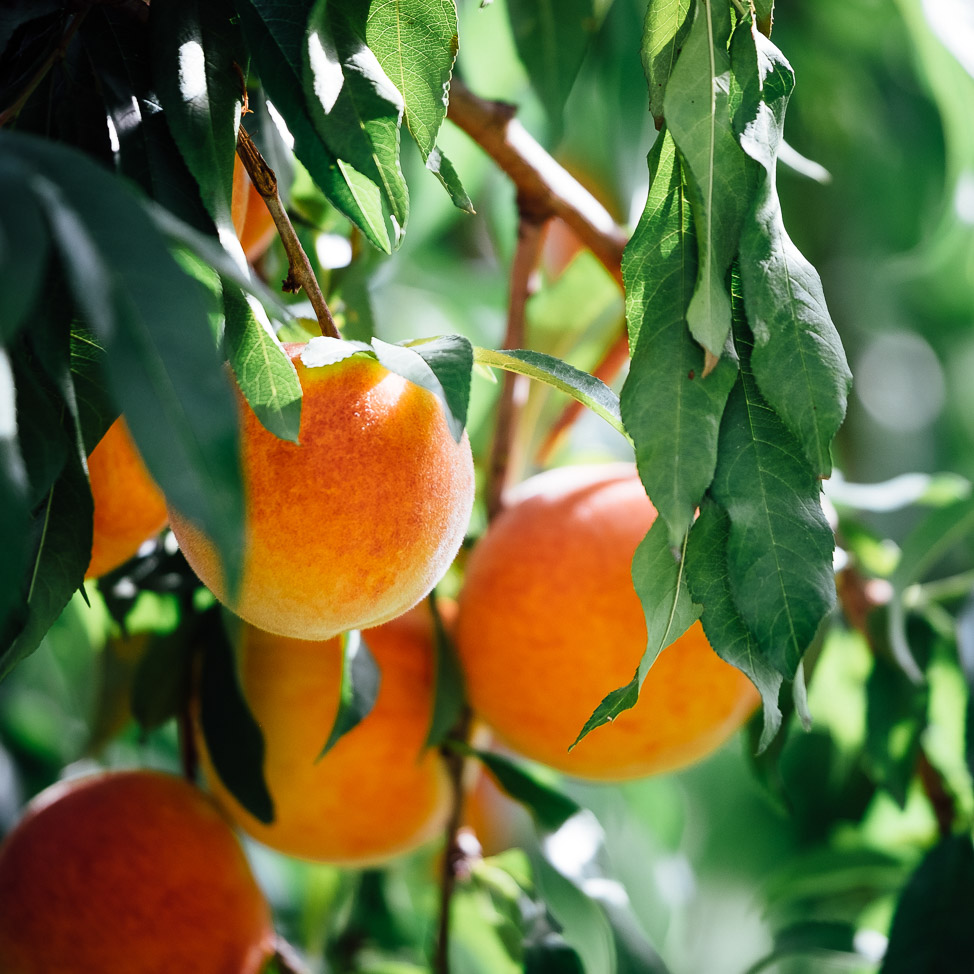
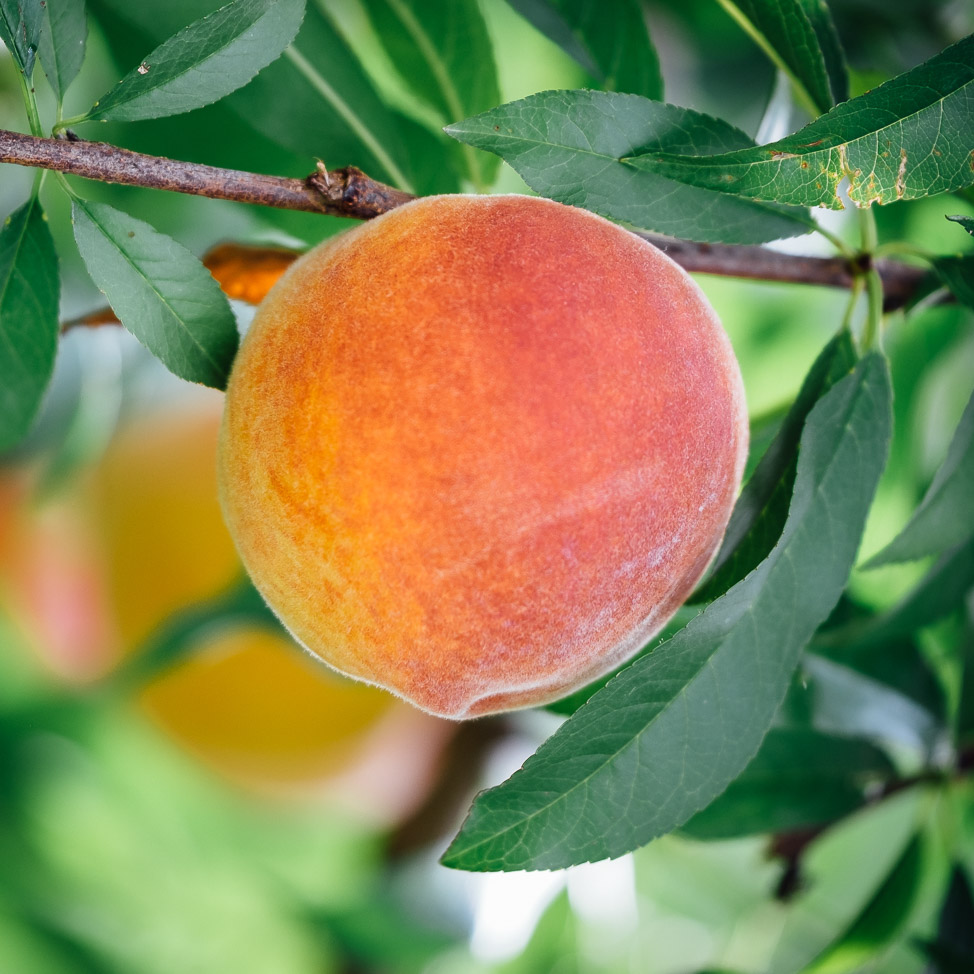
In summer months, you can find the Peach Truck at various locations around Nashville seven days a week, but they’ve also set out on their 126-stop Freestone Tour, which makes two loops throughout the course of the summer, spanning Tennessee, Kentucky, Ohio, Indiana and Pennsylvania. That’s right, if you’re in any of those states, they might be coming to your town!
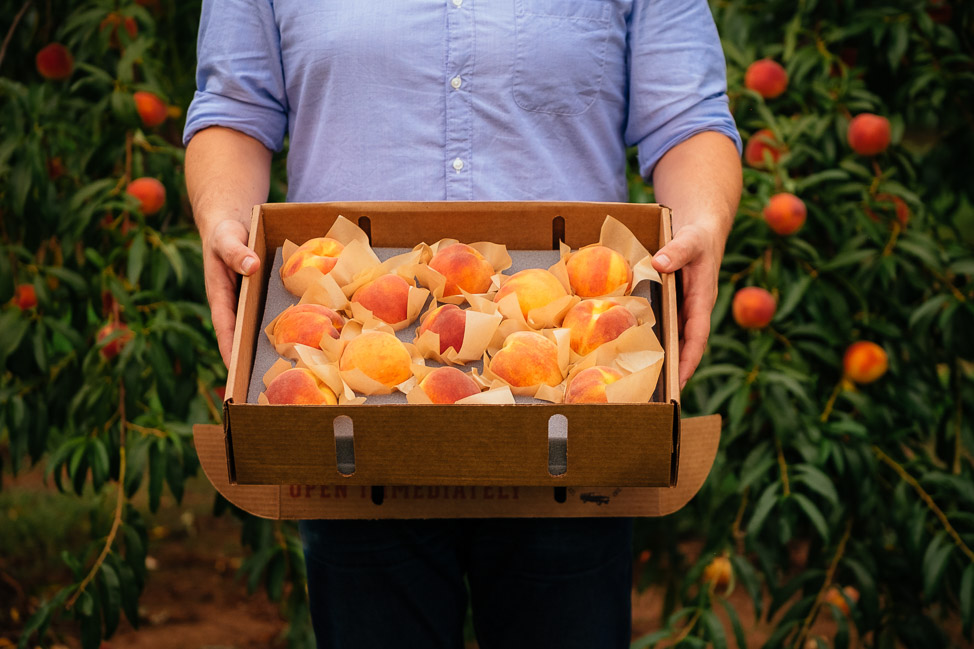
And if you’re not fortunate enough to be on the receiving end of the Freestone Tour (I’m so sorry), then you can still enjoy their spoils with the Farm to Porch program that allows a crate of peaches to be shipped to any state in the country, other than Arizona and California (dang agricultural restrictions!).
Ella thinks their peaches are pretty freakin’ awesome, too. Not a day goes by where she doesn’t persuade me to feed her one.
Just before peach season picked up, I sat down with Stephen and Jessica, who not only have a darling almost-two-year-old Florence, but are expecting twin boys this fall(!), for a long chat about, well, peaches (duh).
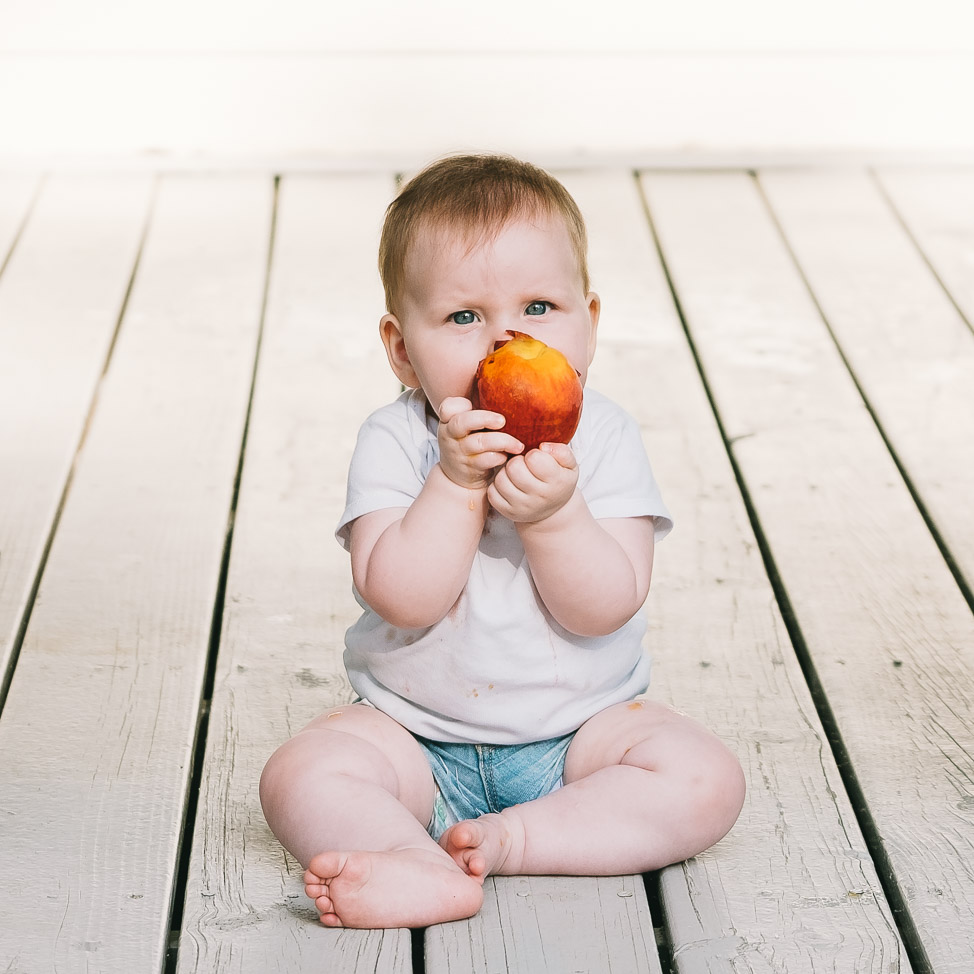
How did you stumble into the peach business?
Jessica: We had moved here for Stephen’s corporate financial sales role. I showed up to town and didn’t have any connections and landed a job at Green Pea Salon, which I managed for almost a year. I’m from Seattle, but there was rarely an opportunity to go out there and see my family; the same went for Stephen working a corporate gig. Any chance for a fun vacation was out of the picture.
So I said, “time out, this sucks, what do we do?”
My dad is a small business owner and he’s had a great thing going, a landscaping business, and made enough to support us and live comfortably, and I told Stephen, “we should start thinking more of these lines of self-employment.” So I left the salon and started my own housecleaning business. That freed me up to kill it in the early hours of the day and be done by noon.
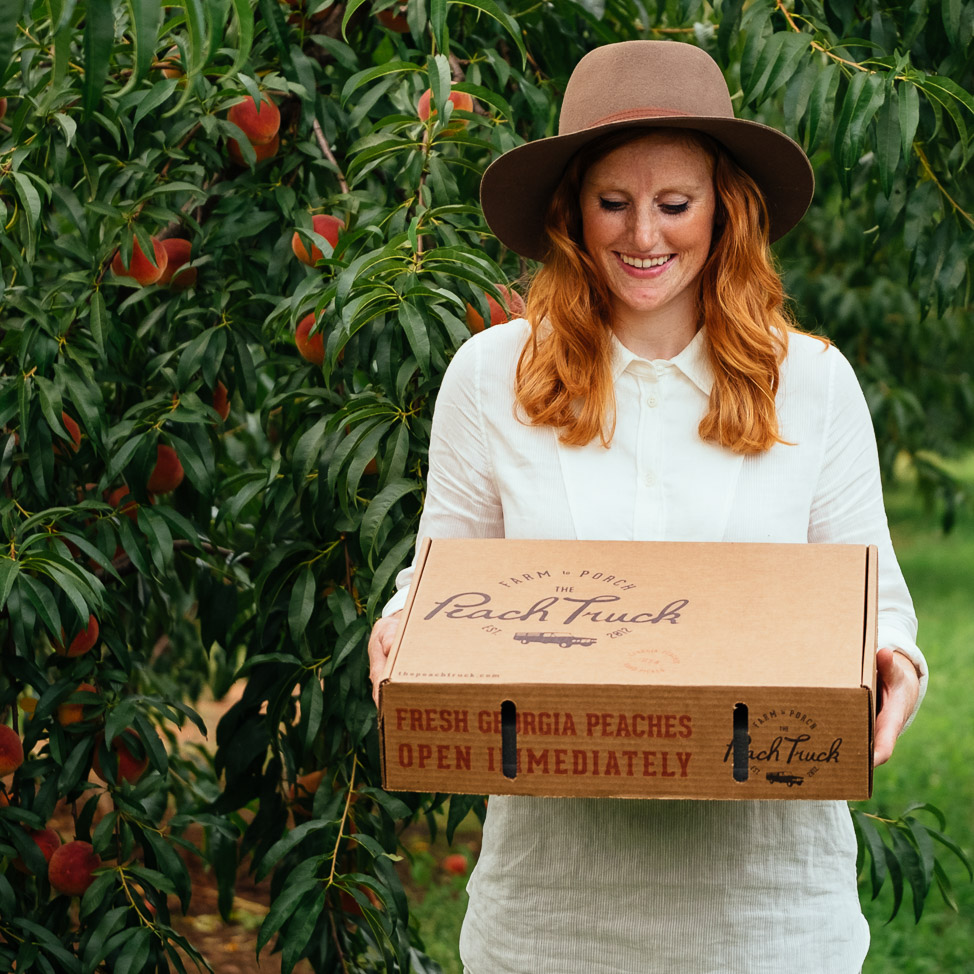
Stephen was still doing the financial thing . There was no drawing up a plan, a five-year thing we were going to do, a vision, a logo—we had nothing like that. We simply went to Georgia to visit his friends and family from his hometown, and I was smuggling peaches home in my purse. Out of conversations, literally, on a front porch, they said, “y’all should bring these up .” And we thought, “yeah, we can’t get anything like this at home, and this is so close and doesn’t make any sense.” So Stephen bought an old truck, and we started calling it the Peach Truck. Yeah, we’re real creative!
We had no idea what we were doing. We were just living our lives, and it naturally all came together.
Stephen: I grew up eating these peaches off of the tree, so to not have access to them was mind-boggling to me. Nashville was really just starting out as a food town then, and all I knew was I couldn’t get good peaches and the chefs probably couldn’t get good peaches, so why not partner with my hometown farm and be their Nashville arm?
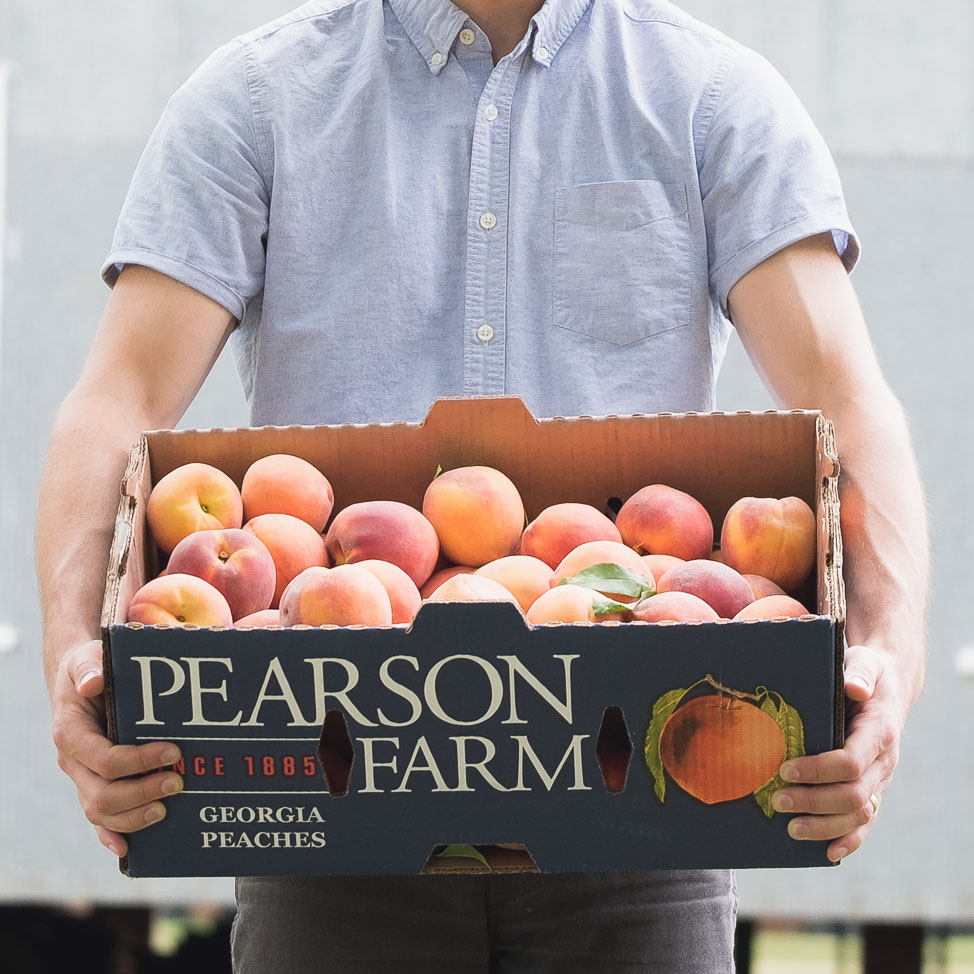
It was a super simple vision from the start: I wanted to eat great peaches, and I was sure other people would like them, as well. So we went over to Imogene + Willie and asked if we could park the truck in front of their shop. They loved the idea, and we started nights and weekends selling peaches out of the back of the truck.
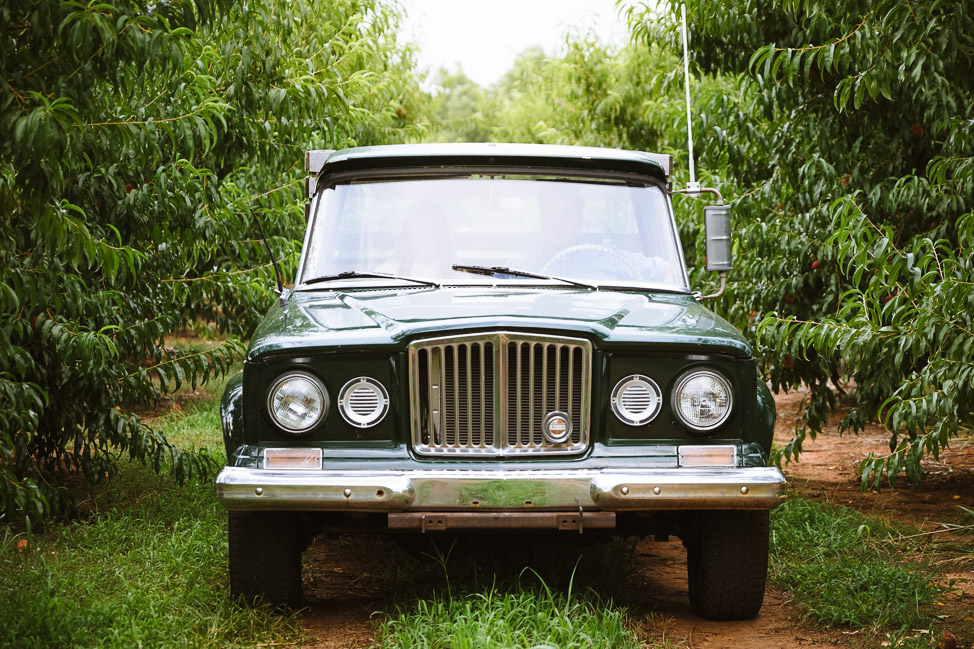
That first year , it wasn’t a sustainable business but there was enough excitement where we thought, “if we put our full effort into this, could it sustain our lives?” We were renting a small house and kept overhead low in our personal lives, and the next February, quit our jobs and said, “let’s try to do this full time.” Luckily, it worked out.
Jessica: Year one, Stephen’s in his cubicle calling me saying, “this restaurant wants two boxes, that restaurant wants a box,” and I’m in my nasty scrubs cleaning then delivering peaches in that old truck that’s 15 degrees hotter than outside, the floor burning the soles of my feet. We worked so hard that first year. We sold 10 tons. That sounds like an enormous amount. For two people, it was incredible. The pay-off? Stephen was happy with it but I was like, “WHAT?”
Peaches have zero shelf life. You need to know what you’re doing immediately when you get peaches. And they’re literally in our living room with clouds of fruit flies forming unless I’m out there getting these things sold. It’s just the craziest amount of work.
Peaches, they’re high maintenance. Very high maintenance.
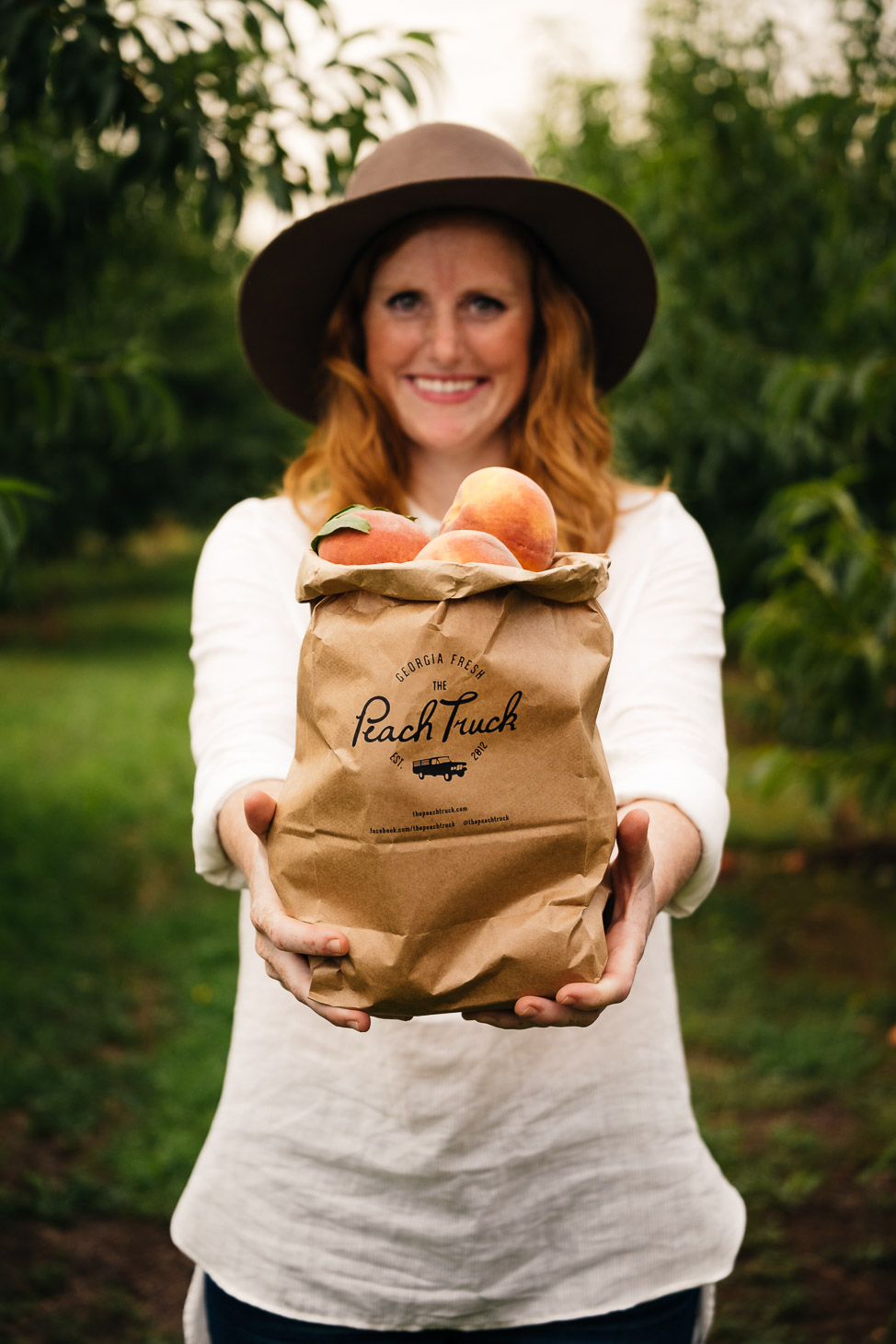
Stephen felt good about it, I didn’t feel good about it. Yet, we had lived our lives so simple that the risk of us quitting our jobs wasn’t that intense—we could always start up my house-cleaning company again or he could find another corporate gig—but you feel that hunger: “The savings only last that long, so let’s just go for this.” We hit it hard.
We had a couple people in our lives who said, “you can really do something like this. Think bigger than you’re thinking. Push hard, make mistakes, learn from them and become better.” We did take a major jump from year one to two and then year two to three, another major jump. You find an amazing product, which we did, and amazing people and then you create processes that make it so there’s not rotting peaches everywhere and you’re actually selling every single one of them and you’re having zero waste. Once you have those things in line, the sky’s the limit.
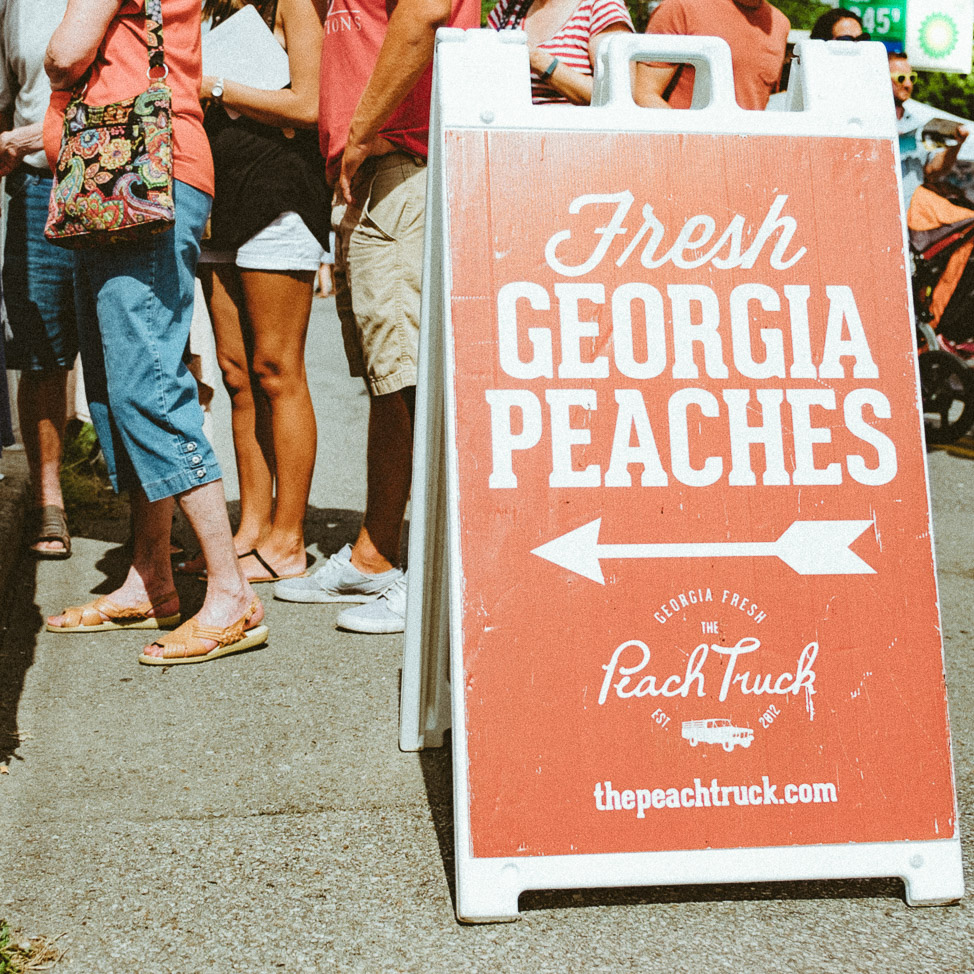
It’s like, who needs peaches? Hipsters, grandmas, babies, everyone. This isn’t a $400 pair of jeans. This is just food, good food.
What was something you learned early on that was key to your business’ evolution?
Jessica: We stayed in our lane and hired people who were better than us for other things that we needed, and we’ve been able to unbelievably take off.
Stephen: Our second year, we brought on a couple people in similar situations to us who wanted something more. It was like, “hey, we can’t really promise anything” but rather, “hey, if this works, then we’ll share.” That’s something that’s been a great model for us: lower risk, but high reward. And it’s high risk for the people coming on, but the reward is great when it does work. And gratefully, it has. We’ve been able to follow through on promises we’ve made and ideas that could grow, and we’re all able to reap the benefit of that.
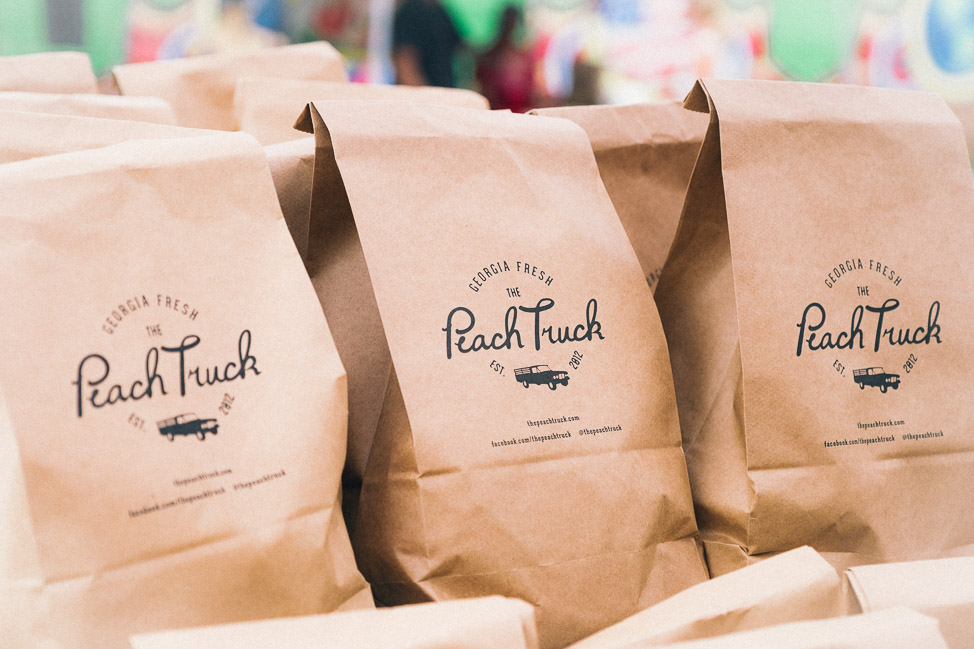
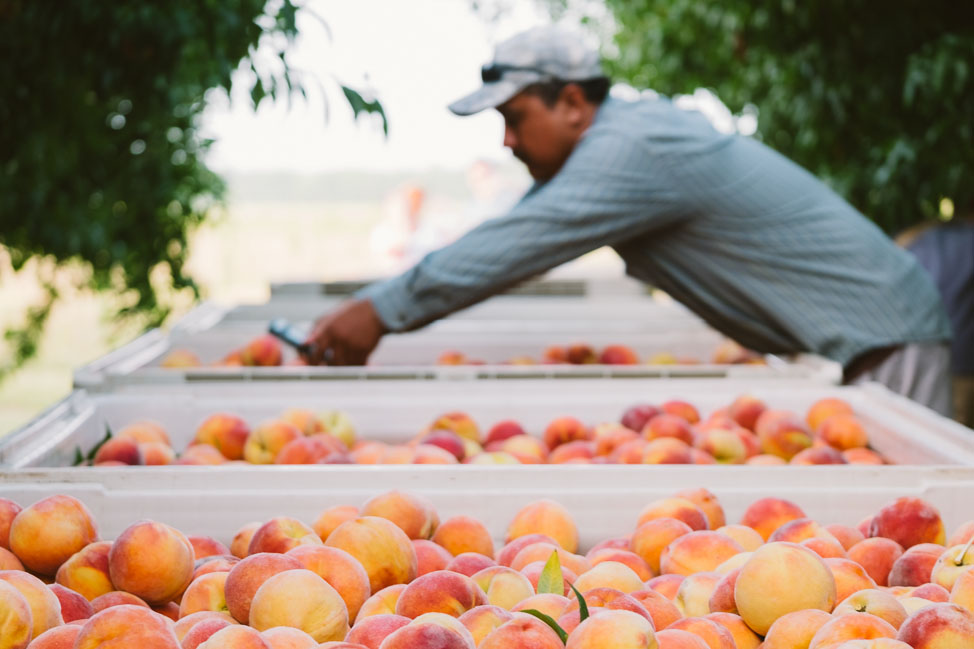
Jessica: Our key is that when we made all the mistakes, we just apologized and moved as quickly away from doing the wrong thing into the right area as fast as we could.
I feel like that’s a very Nashville frame of thinking that wouldn’t fly in, say, San Francisco or another big city that’s not as civic-minded.
Stephen: It definitely wouldn’t fly. This is a very different culture than Silicon Valley. We’ve traveled to India, and there’s roadside fruit vendors. It’s one of the oldest businesses. That simple, “let’s get peaches fresh off the tree to as many people as possible” really strikes a chord with folks and the story and the way we conduct ourselves and the booths—we want that beautiful aesthetic with everything we do.
Now, we have two others who are full-time with Jessica and me and 50 summer staff—freelancers and musicians and teachers and writers—who have a great summer gig where they’re getting to interact with our incredible customers and continue to share that story of a fifth-generation peach farm.
People share that same passion about this as we do, which is pretty incredible.
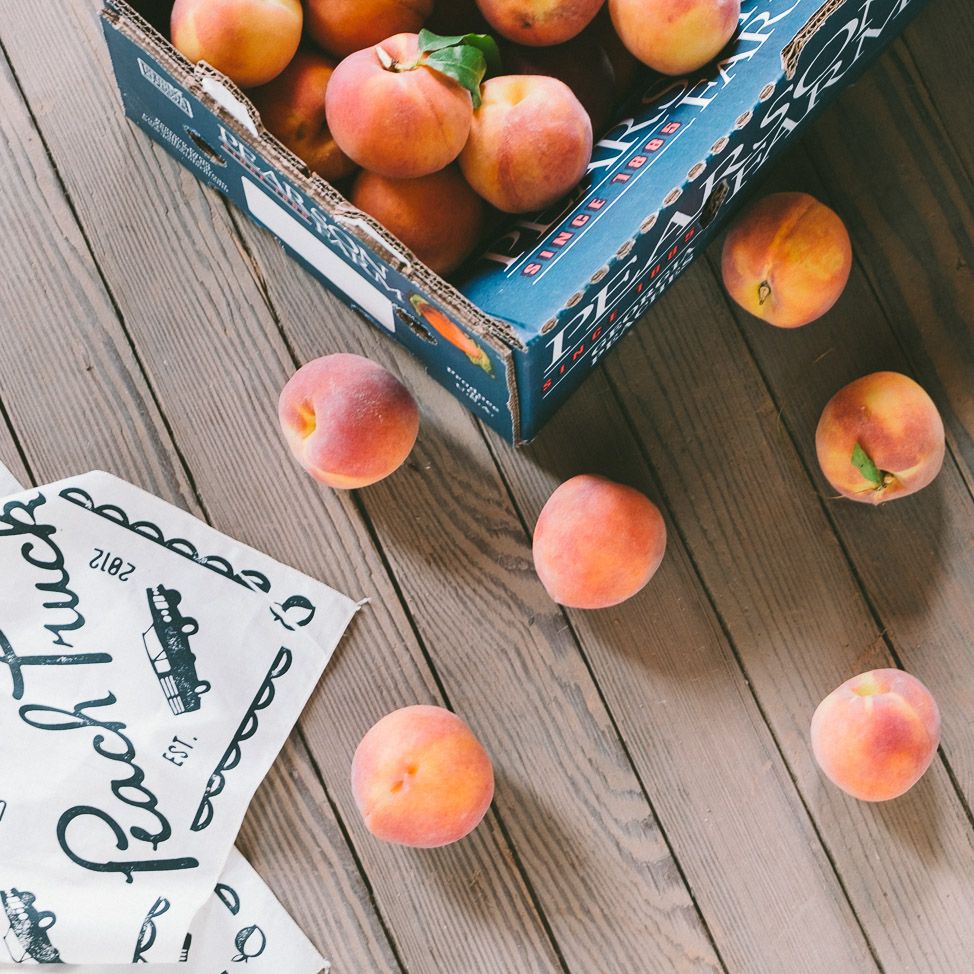
And you vet each summer employee by video application, is that right?
Jessica: I’m a mom, and my time is valuable. We get a couple hundred applications, and if I block 40 minutes to interview everyone? I don’t have time for it, so I’ve tried to hone my craft of the interviewing process, like, right off the bat I’m not getting that sales vibe from you or bubbly excitement to be outside. Peach season is 13 weeks, and when you break that down, every day is three days to a regular business. Every location counts, every hour matters. I’m not hiring you for the next four years. It’s a fun summer gig, so hop on, be fully in, have a blast, you’re outside, you’re selling peaches.
Peaches are sexy. I mean, it’s not a banana.
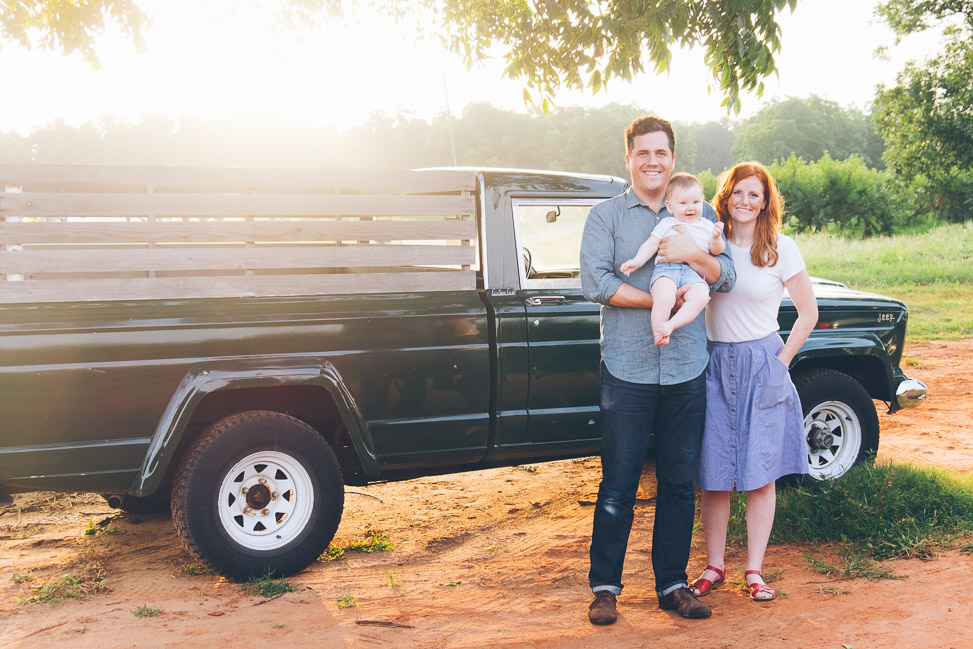
All photos by Colin Fatke
Save
Save
Save
Save
Save
Save
Save
Save
Save
Save
Save
Save
Save
Save
Save
The post Creative Crush: Jessica + Stephen Rose, The Peach Truck appeared first on Camels & Chocolate.
Source: camelsandchocolate.com










